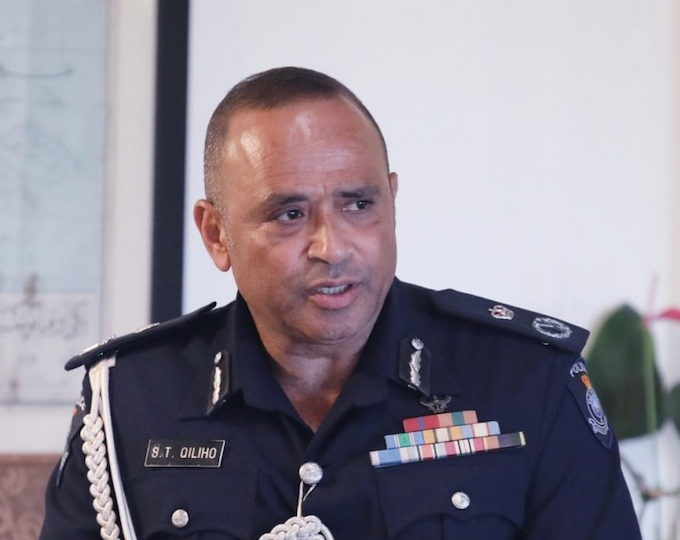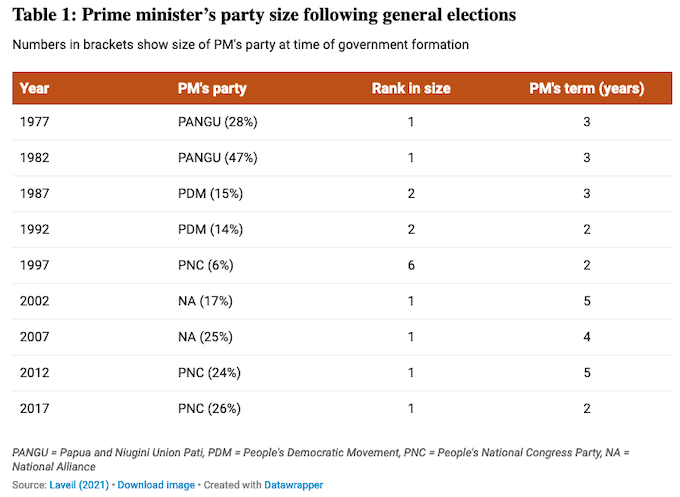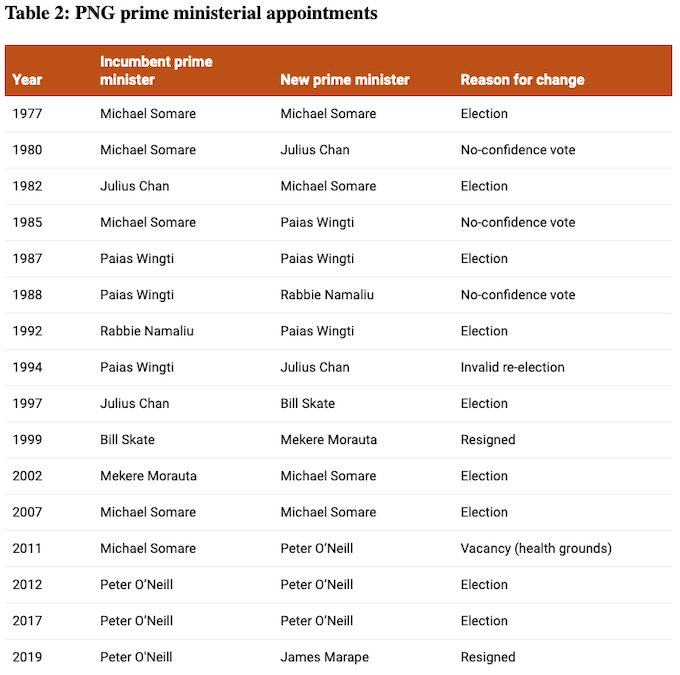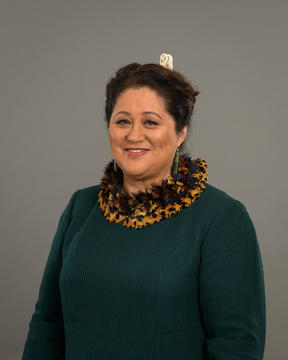COMMENTARY: By Lagipoiva Cherelle Jackson and Junior S. Ami
With just over a year left in her tenure as Prime Minister of Samoa, Fiame Naomi Mata’afa faces a political upheaval threatening a peaceful end to her term.
Ironically, the rule of law — the very principle that elevated her to power — has now become the source of significant challenges within her party.
Fiame left the Human Rights Protection Party (HRPP) in 2020, opposing constitutional amendments she believed undermined judicial independence. Her decision reflected a commitment to democratic principles and a rejection of increasing authoritarianism within the HRPP.
She joined the newly formed Fa’atuatua i le Atua Samoa ua Tasi (FAST) party, created by former HRPP members seeking an alternative to decades of one-party dominance.
As FAST’s leader, Fiame led the party to a historic victory in the 2021 election, becoming Samoa’s first female Prime Minister and ending the HRPP’s nearly 40-year rule.
Her leadership is now under threat from within her own party.
FAST Founder, chairman and former Minister of Agriculture and Fisheries La’auli Leuatea Polataivao Schmidt, faces criminal charges, including conspiracy and harassment. These developments have escalated into calls for Fiame’s removal from her party.
Deputy charged with offences
On 3 January 2025, La’auli publicly revealed he had been charged with offences including conspiracy to obstruct justice, fabricating evidence, and harassment. These charges prompted widespread speculation, fueled by misinformation spread primarily via Facebook, that the charges were related to allegations of his involvement in an ongoing investigation into the death of a 19-year-old victim of a hit-and-run.
Following La’auli’s refusal to resign from his role as Minister of Agriculture and Fisheries, Fiame removed his portfolio on January 10, citing the need to uphold the integrity of her Cabinet.
“As Prime Minister, I had hoped that the former minister would choose to resign. This is a common stance often considered by esteemed public office custodians if allegations or charges are laid against them,” she explained.
In response to his dismissal, La’auli stated publicly: “I accept the decision with a humble heart.” He maintained his innocence, saying, “I am clean from all of this,” and expressed confidence that the truth will prevail.
La’auli urged his supporters to remain calm and emphasised his commitment to clearing his name while continuing to serve as a Member of Parliament for Gagaifomauga 3.
Following his removal, the Samoan media reported that members of the FAST party wrote a letter to Fiame requesting her removal as Prime Minister.
Three ministers dismissed
In response, Fiame dismissed three Cabinet Ministers, Mulipola Anarosa Ale-Molio’o (Women, Community, and Social Development), Toelupe Poumulinuku Onesemo (Communication and Information Technology), and Leota Laki Sio (Commerce, Industry, and Labor) — allegedly involved in the effort to unseat her.
Fiame emphasised the need for a cohesive and trustworthy Cabinet, stating the importance of maintaining confidence in her leadership.
Amid rumors of calls for her removal within the FAST party, Fiame acknowledged the party’s authority to replace her as its leader but clarified that only Parliament could determine her status as Prime Minister.
She expressed her determination to fulfill her duties despite internal challenges, though she did not specify the level of support she retains within the party.
Samoa’s Parliament is set to convene next Tuesday, where these tensions may reach a critical point. La’auli, facing multiple criminal charges, remains a focal point of the ongoing political turmoil.
A day after the announcement, on January 15, four new Ministers were sworn into office by Head of State Tuimaleali’ifano Va’aleto’a Sualauvi II at a ceremony attended by family, friends, and some FAST members.
The new Ministers are Faleomavaega Titimaea Tafua (Commerce, Industry, and Labour), Laga’aia Ti’aitu’au Tufuga (Women, Community, and Social Development), Mau’u Siaosi Pu’epu’emai (Communications and Information Technology), and Niu’ava Eti Malolo (Agriculture and Fisheries).
FAST caucus voted against Fiame
Later that evening, FAST chairman La’auli announced that 20 members of the FAST caucus had decided to remove Fiame from the leadership of FAST and expel her from the party along with five other Cabinet Ministers — Tuala Tevaga Ponifasio (Deputy Prime Minister), Leatinuu Wayne Fong, Olo Fiti Vaai, Faualo Harry Schuster, and Toesulusulu Cedric Schuster.
In Samoa, if an MP ceases to maintain affiliation with the political party under which they were elected — whether through resignation or expulsion, their seat is declared vacant if they choose to move to another party or form a new party.
These provisions aim to preserve political stability, prevent party-hopping, and maintain the integrity of parliamentary representation, with byelections held as needed to fill vacancies.
Under Section 142 of Samoa’s Electoral Act 2019, if the Speaker believes an MP’s seat has become vacant as per Section 141, they are required to formally charge the MP with that vacation.
If the Legislative Assembly is in session, this charge must be made orally during the Assembly. Fiame and the four FAST members can choose to maintain their seats in Parliament as Independents.
Former Prime Minister and now opposition leader Tuilaepa Sa’ilele Malielegaoi remarked that what should have been internal FAST issues had spilled into the public sphere.
“We have been watching and we continue to watch what they do and how they deal with their problems,” he stated.
Freedom of expression
When asked whether he would consider a coalition or support one side of FAST, Tuilaepa declined to reveal the opposition’s strategy, citing potential reactions from the other side. He emphasised the importance of adhering to democratic processes and protecting constitutional rights, including freedom of expression.
As Parliament prepares to reconvene on January 21, Facebook has become a battlefield for misinformation and defamatory discourse, particularly among FAST supporters in diaspora communities in the US, Australia, and New Zealand.
Divisions have emerged between supporters of Fiame and La’auli, leading to vitriol directed at politicians and journalists covering the crisis. La’auli, leveraging his social media following, has conducted Facebook Live sessions to assert his innocence and rally support.
Currently, FAST holds 35 seats in Parliament, while the opposition HRPP controls 18. If the removal of five MPs is factored in, FAST would retain 30 MPs, though La’auli claims that 20 members support Fiame’s removal. This leaves 10 MPs who may either support Fiame or remain neutral.
If FAST fails to expel Fiame, La’auli’s faction may push for a motion of no confidence against her.
Such a motion requires 27 votes to pass, potentially making the opposition pivotal in determining the outcome. This could lead to either Fiame’s removal or the dissolution of Parliament for a snap election.
As Samoa faces this political crisis, its democratic institutions undergo a significant test.
Fiame remains committed to the rule of law, while La’auli advocates for her removal.
Reflecting on the stakes, Fiame warned: “Disregarding the rule of law will undoubtedly have far-reaching negative impacts, including undermining our judiciary system and the abilities of our law enforcement agencies to fulfill their duties.”
For now, Samoa watches and waits as its political future hangs in the balance.
Lagipoiva Cherelle Jackson is a Samoan journalist with over 20 years of experience reporting on the Pacific Islands. She is founding editor-in-chief of The New Atoll, a digital commentary magazine focusing on Pacific island geopolitics. Junior S. Ami is a photojournalist based in Samoa. He has covered national events for the Samoa Observer newspaper and runs a private photography business. Republished from the Devpolicy Blog with permission.
This post was originally published on Asia Pacific Report.

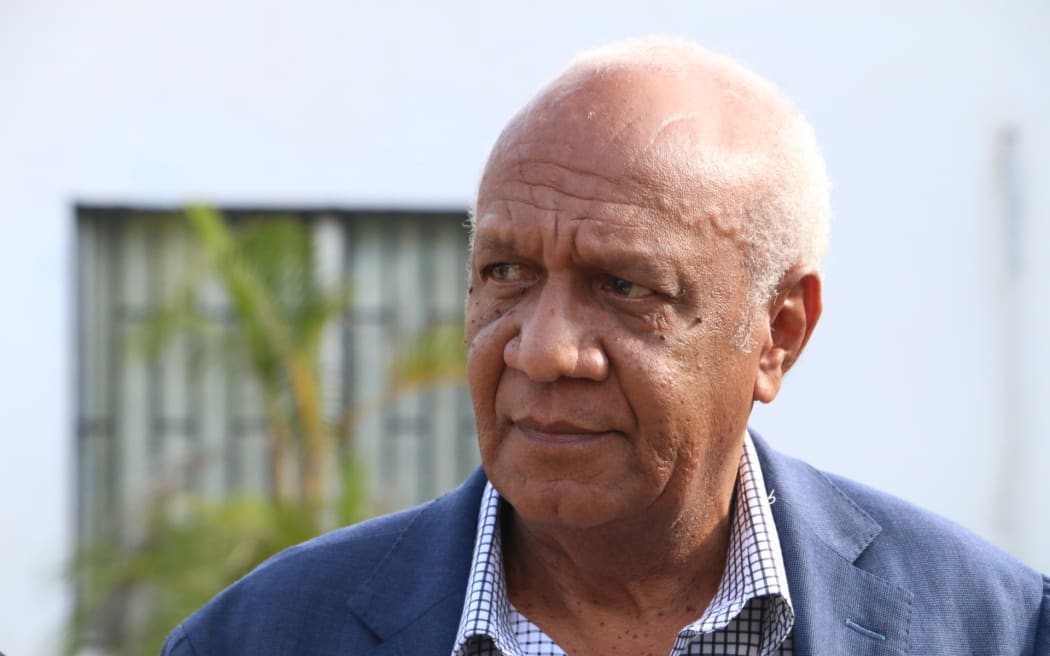

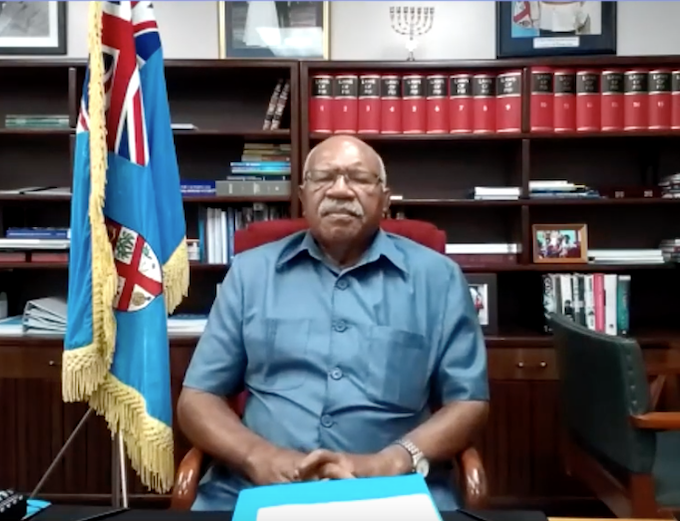
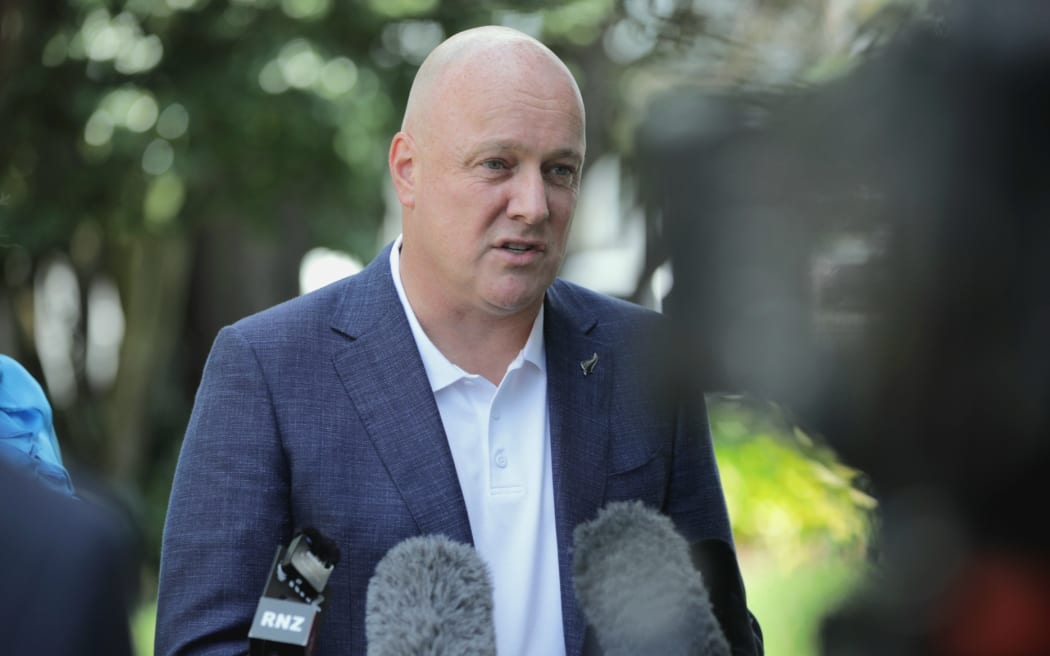
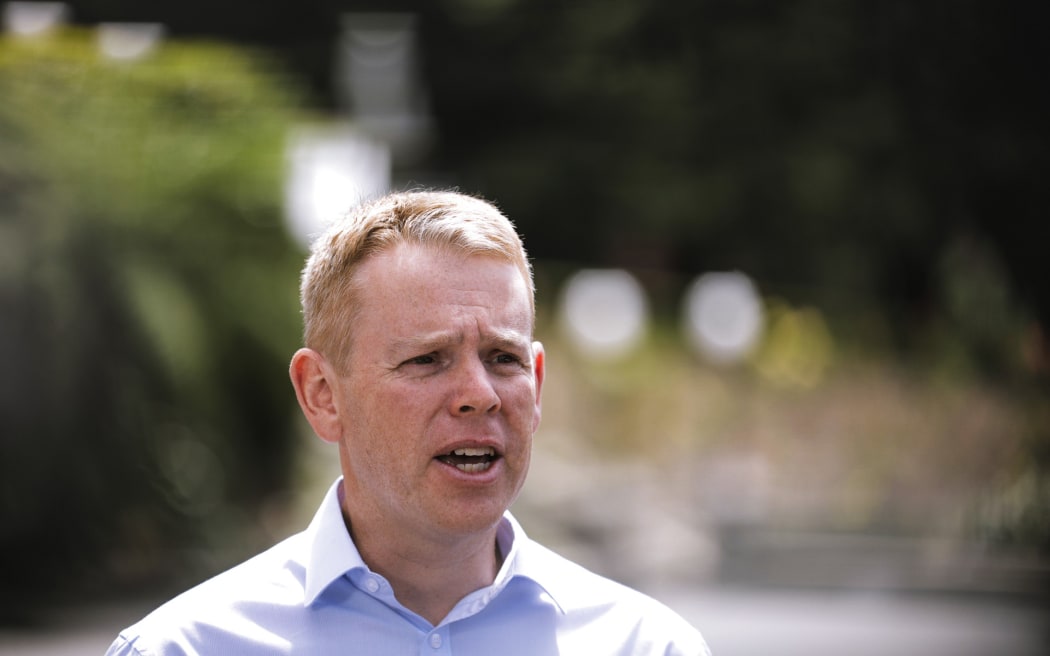
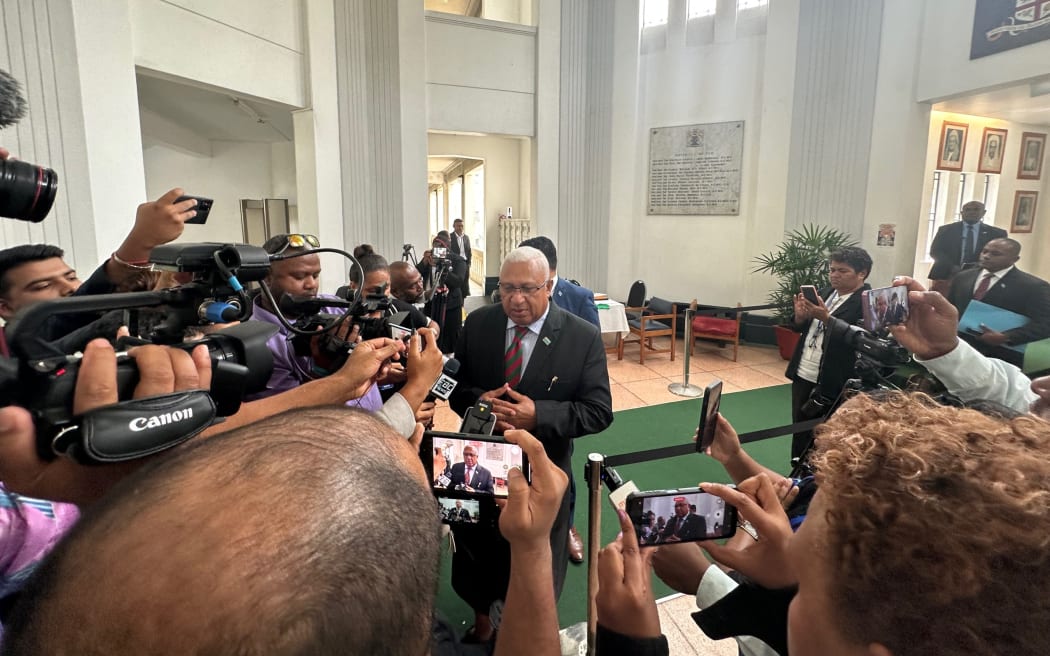
 ’s new Prime Minister Hon. Sitiveni Rambuka. Congratulations also to the new Speaker of the House Ratu Naiqama Lalabalavu and Deputy Speaker Hon Lenora Qereqeretabua
’s new Prime Minister Hon. Sitiveni Rambuka. Congratulations also to the new Speaker of the House Ratu Naiqama Lalabalavu and Deputy Speaker Hon Lenora Qereqeretabua 

